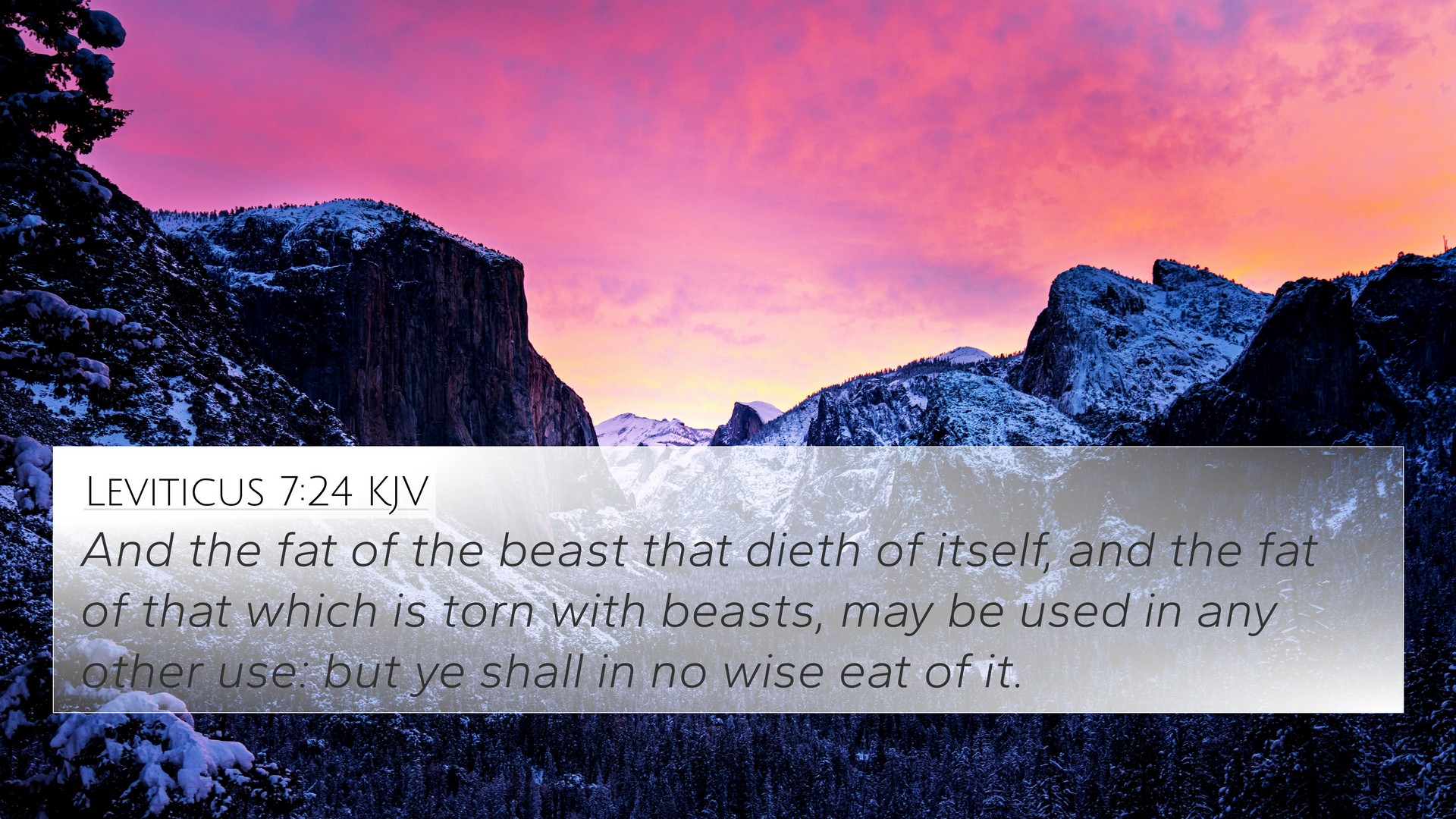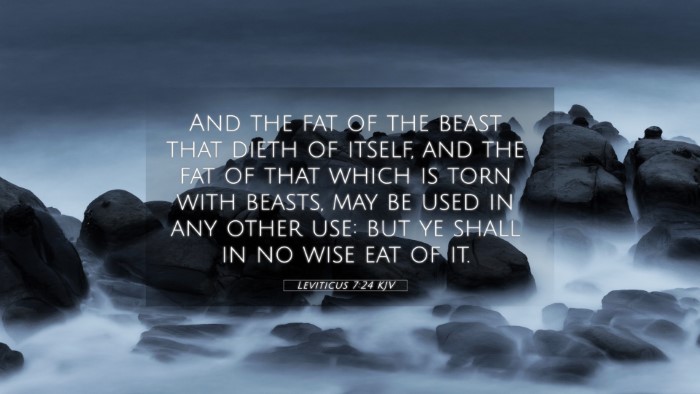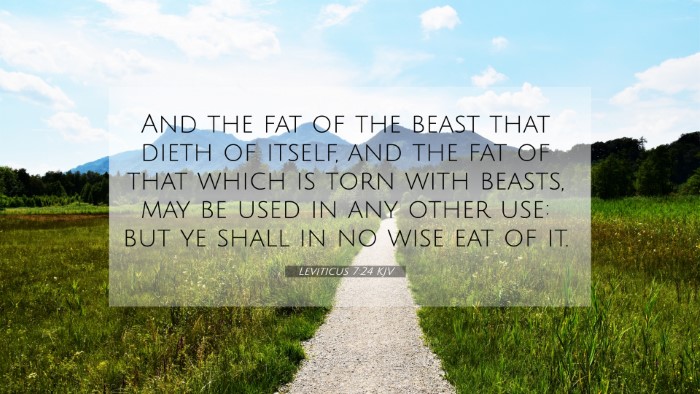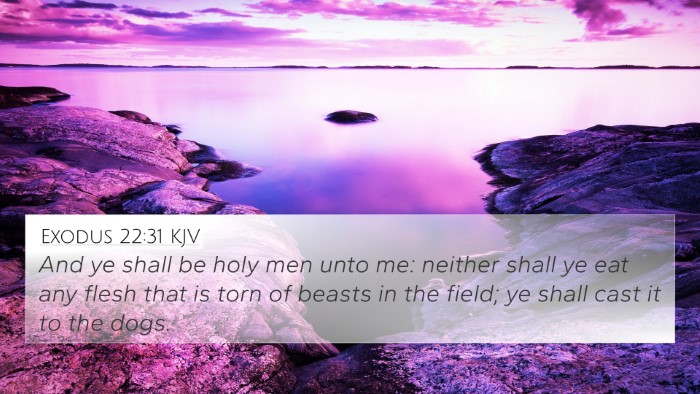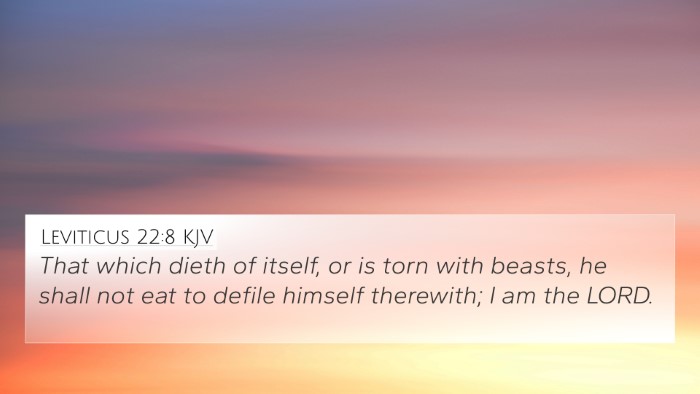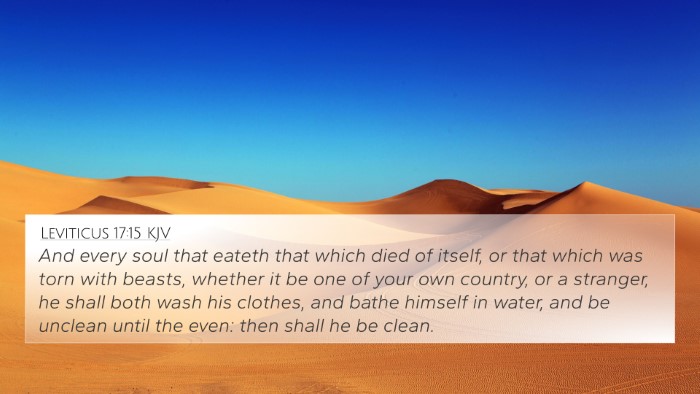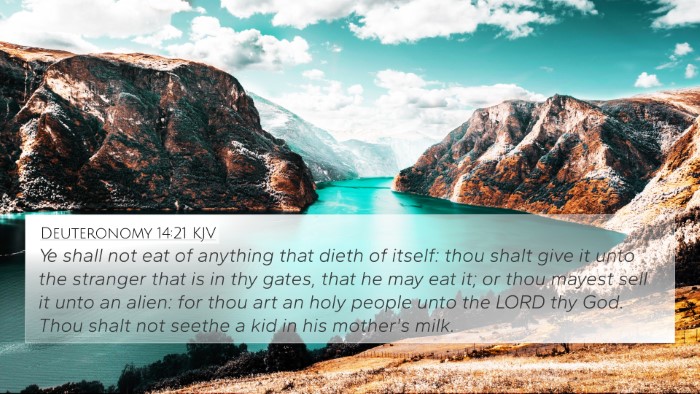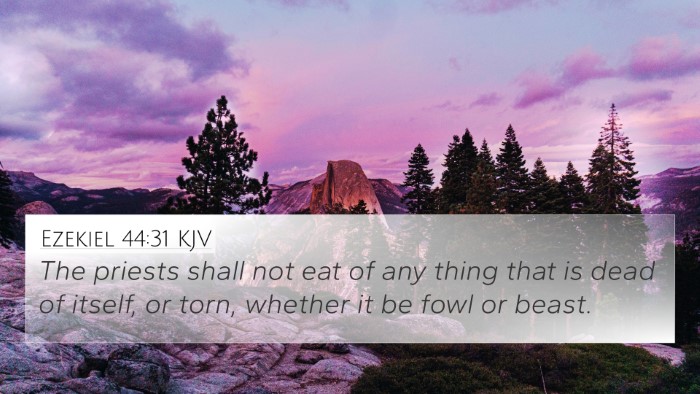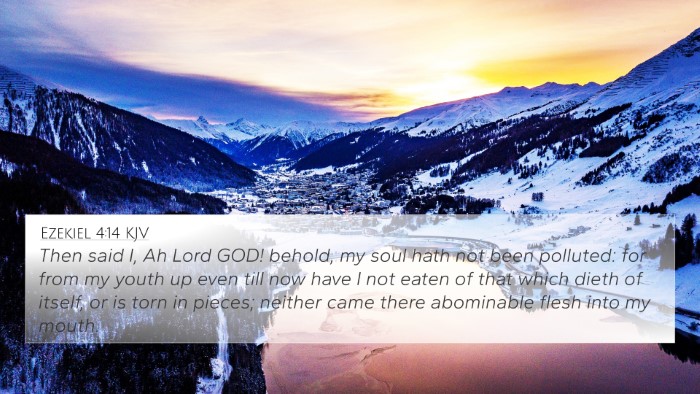Understanding Leviticus 7:24
Leviticus 7:24 reads: "And the fat of an animal that dies of itself, and the fat of that which is torn with beasts, may be used in any other use; but you shall in no wise eat of it." This verse speaks to the regulations concerning dietary laws and practices that the Israelites were to observe. Various commentaries provide insights into the significance of these instructions, which reveal deeper theological themes within the framework of the Law.
Key Themes:
- The Significance of Fat: In Levitical law, fat commonly represented the best portion of an animal, reserved for offerings to God. Here, the text stresses the distinction between what is considered clean and unclean.
- Divine Holiness: The reiterated instruction about the fat emphasizes God’s holiness, as consuming fat from certain animals goes against the statutes that distinguish clean from unclean.
- Consequences of Disobedience: This verse serves as a reminder of the consequences of not heeding God's commandments, suggesting that although some might see value in using the fat, spiritual obedience is paramount.
Insights from Public Domain Commentaries
Matthew Henry's Commentary: Matthew Henry emphasizes that the prohibition against consuming fat is pivotal because it is to be offered to the Lord. He notes the importance of adhering to God's defined boundaries in ritualistic practices, which served a dual purpose of promoting health among the Israelites and signifying a greater spiritual truth about offering the best to God. Henry posits that the dietary laws were not merely for physical sustenance but also had significant spiritual implications, reinforcing the covenant relationship between God and His people.
Albert Barnes' Notes: Albert Barnes explains that fat from animals that had died naturally or were killed by beasts could be used for other purposes but were prohibited for consumption. He notes that this reflects a broader principle about maintaining purity and holiness in worship practices. Barnes suggests that this verse reveals God's desire for the Israelites to maintain a holy life, which is free from contamination, both physically and spiritually. He also indicates that the sanitary measures in these laws likely contributed to the people’s overall well-being and societal order.
Adam Clarke's Commentary: Adam Clarke brings attention to the cultural historical practices surrounding animal sacrifice and dietary laws during the time of the Israelites. He insists on the symbolic nature of the laws given in Leviticus, highlighting that they serve as a form of spiritual discipline. Clarke discusses the moral implications of what is deemed acceptable and what is not, further asserting that such stipulations encourage a holistic lifestyle that aligns with God’s will.
Bible Verse Cross-References
This verse can be linked to several other passages in Scripture that reinforce its themes:
- Leviticus 3:16-17: Discusses the ritual of offering the fat to the Lord.
- Deuteronomy 14:3-21: Provides broader dietary laws about what the Israelites could eat or not.
- 1 Samuel 2:15-16: Highlights the improper handling of offerings which shows the seriousness of these laws.
- Hebrews 9:22: Connects to the idea that without the shedding of blood, there is no forgiveness, underscoring the sanctity of offerings.
- Isaiah 65:4: Presents God’s rejection of rituals that have become hollow in meaning, emphasizing the importance of purity.
- Romans 12:1: Encourages believers to offer themselves as living sacrifices, relating back to the themes of offerings in Leviticus.
- 1 Corinthians 10:23-31: Discusses the idea of freedom in Christ and how to handle food that may not be clean.
- Mark 7:18-19: Where Jesus clarifies the distinction of what truly defiles a person, linking back to the laws of Leviticus.
Conclusion
In summary, Leviticus 7:24 serves as a critical verse within the law that upholds God's holiness and the necessity of separating what is clean from what is unclean. The insights provided by esteemed commentaries such as those of Matthew Henry, Albert Barnes, and Adam Clarke elucidate the spiritual implications of these dietary restrictions and their relevance in the broader scriptural narrative. Through cross-referencing this verse with others, we gain a fuller understanding of the interconnectedness of Biblical texts, fostering a deeper appreciation for the divine guidance offered throughout Scripture.
Further Exploration: Engaging in Bible cross-reference studies can yield profound insights into understanding the connections between different Scriptures, thereby enriching one's study and application of God's Word. For anyone interested in exploring these concepts further, various tools for Bible cross-referencing, including a Bible concordance and Bible reference resources, can be invaluable in uncovering the themes and relationships within the Scriptures.
